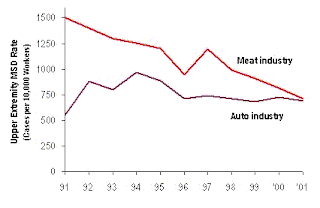Those who have, get in return. That seems to be the theme for the rebuilding New Orleans. And for those who don’t have? Take advantage of them or let them try alone.
“It seemed briefly as though everyone living here had experienced the same loss at the same time. For those back in the city at times it felt like differences of race and class had washed away,” is what Jordan Flaherty wrote. And for a moment during and maybe after the storm, that was probably true. When something like this happens to a city, people take a moment and remember they are not alone in the situation. However, often that doesn’t last. Not long, and class and race came racing to the top of the issues determining how the city would be rebuilt. The wealthy people of the city quickly became priorities of insurance companies, and I’ve heard it in agriculture too: keep the big customers happy first because they write the biggest checks. And when aide finally arrived (if you can call it that) it went to the same place the insurance was going. Corporations took advantage of struggling people and those with money were able to pay to get help and services. For the majority of the wealthy, however, they didn’t have nearly the most damage. They had already built their homes and business in parts of town that were much less affected by the flood.
 So the rich parts of town were the ones who were able to also have backup generators to run their bars and businesses and start working back to the normal “normal” New Orleans. But the culture and traditions of New Orleans are derived from the working class who are mostly poor, African American citizens who were neglected and who also suffered the worst of the flooding in the city. And then when the rebuilding began, what did the government do? George W. Bush suspended the Davis Bacon Act, allowing companies to not pay their workers minimum wage. It also allowed those companies to not hire local people to do local work, and instead, outsource that labor to immigrants or other, outside people.
So the rich parts of town were the ones who were able to also have backup generators to run their bars and businesses and start working back to the normal “normal” New Orleans. But the culture and traditions of New Orleans are derived from the working class who are mostly poor, African American citizens who were neglected and who also suffered the worst of the flooding in the city. And then when the rebuilding began, what did the government do? George W. Bush suspended the Davis Bacon Act, allowing companies to not pay their workers minimum wage. It also allowed those companies to not hire local people to do local work, and instead, outsource that labor to immigrants or other, outside people.
“Disaster capitalism,” as Naomi Klein called it, looks for people with money after these disasters to help out. Helping people without money is the same thing as charity, and charity doesn’t take advantage of people. Not to mention, people from around the country paying money to see the devestation 'first hand' in the form of disaster tourism, looking out the window of a Greyhound bus. And then what happens? The poor people get blamed for squandering the money therefore they don’t get any of it. It’s a dark, long spiral downward for the people of New Orleans.
 All of these things have continued to suppress the true local people of New Orleans, and without those people, who will bring the culture back to the city? Who will bring the tourists back? Who will bring the money and excitement back to New Orleans? I’ve never been, but I know that the city has an exciting reputation, but Floodlines has made me realize who really gives that spark to the city, and how those people have truly been victimized by many different entities in the post-Katrina era in The Big Easy.
All of these things have continued to suppress the true local people of New Orleans, and without those people, who will bring the culture back to the city? Who will bring the tourists back? Who will bring the money and excitement back to New Orleans? I’ve never been, but I know that the city has an exciting reputation, but Floodlines has made me realize who really gives that spark to the city, and how those people have truly been victimized by many different entities in the post-Katrina era in The Big Easy. 

















